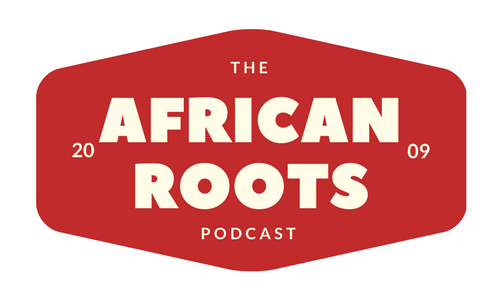Welcome back to the African Roots Podcast. You can always reach me at africanrootspodcast@gmail.com
Now that January comes to the end, it is almost February, and we are buckling down for a frigid weather pattern coming our way.
This time of the years from mid January to February – African American History Month, this is the time to celebrate and honor our movement into a new era.

From MLK Day which honors the Civil Rights era, and to the present struggles of the day–as researchers, we focus, tell our stories and put energy into our projects. Speaking of which I have a new publication about to emerge and a shout out to other writers also. James Morgan III, Kanika Marshal and quite a few other writers are making their mark. So there are many things are going on, so let’s get busy, and plan for the new year!

EVENTS:
I am getting ready also for MAAGI–the Midwest African-American Genealogy Institute. The home base is now at the Genealogy Center at Allen Count Library in Ft. Wayne Indiana. MAAGI is something really unique for those researching people of color.
Were your ancestors enslaved? Or were they free? Do you have a story in the family of a mixed heritage with Native Americans?Could you possibly have ancestors who were in the Civil War or did some become contrabands? Are you considering writing your family’s history? If any of these questions pertain to you and the genealogy work that you conduct, then MAAGI the Midwest African American Genealogy Institute may unlock more doors and you are urged to explore the offerings at this institute.
For the first time, MAAGI will offer 7 tracks over 3 days: That is a total of of 84 classes all pertaining to African American genealogy. Keep in mind that it is not a conference–it is an institute—you roll up your sleeves and work over those three days. MAAGI unfolds at the world renowned Genealogy Center at the Allen County Library in Ft. Wayne Indiana. July 9-11th. The classes are small, intense and focused. The tracks offer sessions of in-depth slavery era research, to unique record sets. DNA classes for beginners and more advanced are part of MAAGI’s offerings. And for the first time, MAAGI offers a writing lab; an intense dive into records of the Five Civilized Tribes of Oklahoma. Those tribes are the Cherokee, Choctaw, Chickasaw, Creek and Seminole Nations. And of course methods of researching pre and post slavery era documents from military to migration will be shared. Join us at MAAGI. Make this the best investment in the future of you, exploring your past.
* * * * * * * * * * *
EVENTS coming up are on the calendars of for everyone. The national conferences are beginning to offer their annual events—NGS, FGS, SCGS Jamboree and more. Also take note of the genealogy online activity. Are you aware of BlackProGen LIVE? If not you may want to tune in and catch a dynamic team of genealogists who discuss pertinent topics of interest to African American researchers. February promises some exciting topics each week!
February 5 – Reconstruction and the Aftermath of Jim Crow
February 12 – Connecting with the Slaveholder’s Descendant
February 19 – Tales from the Undertaker
February 26 – Ask Mariah – The DNA Edition. An entire episode of Ask Mariah.
* * * * * * * * * * *
Bernice Bennet’s Show- Ancestral Footprints on Blog Talk Radio is an ongoing treat every Thursday evening a 9pm EST. Make Sure you make this a regular part of your week.
And think also more about social media, if your are not there and paying attention, you are missing quite a lot!
Take a close look if you are not there- to Facebook: there is a lot going on this social media platform and there are two huge genealogy groups—AfriGeneas Community Group, Our Black Ancestry and several DNA groups also on Facebook.

I also manage an Oklahoma focused group, Choctaw-Chickasaw Freedmen Descendants and belong to other African American history groups with Oklahoma as a focus.

Find a community group that might interest you. If you are on Facebook—put a search in the search box with the name of your ancestral community—there might be a historical group that can get you energized and connected. Time to connect with others—and connecting to others might get to hear long forgotten stories. I belong to a history group that focuses on the city of Muskogee which is an extremely active group sharing photos, documents, funeral programs and so much more.
As we approach new things that are coming up–it is time to look for new ways to explore our love of genealogy and family history. Anyway, just sharing some thoughts and ideas for you to get energized and to dive into those projects.
In the meantime, I hope everyone will have a great week and stay warm, as a major arctic blast comes down. And remember, to keep researching, keep documenting and keep sharing what you find.



